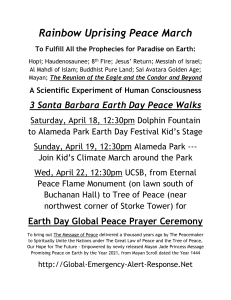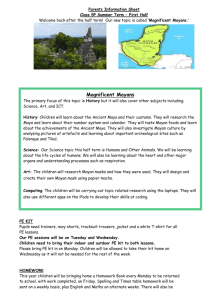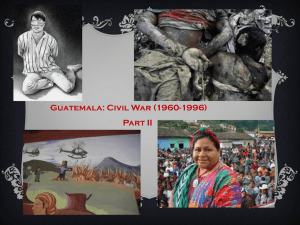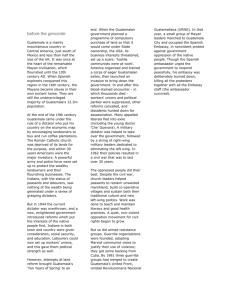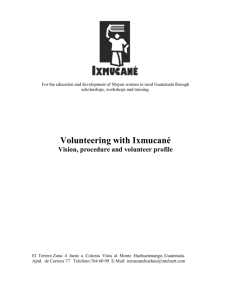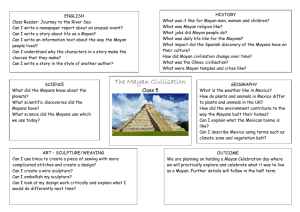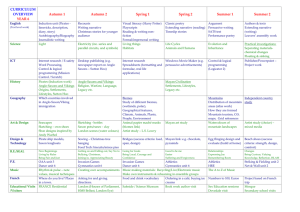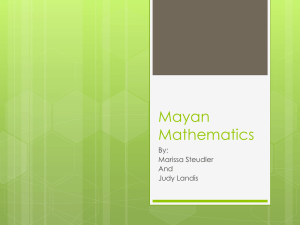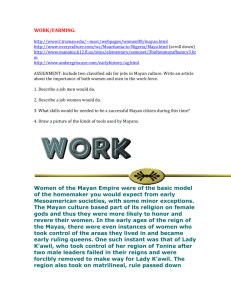XLIV Mesa Redonda de Políticas de la OEA:
advertisement
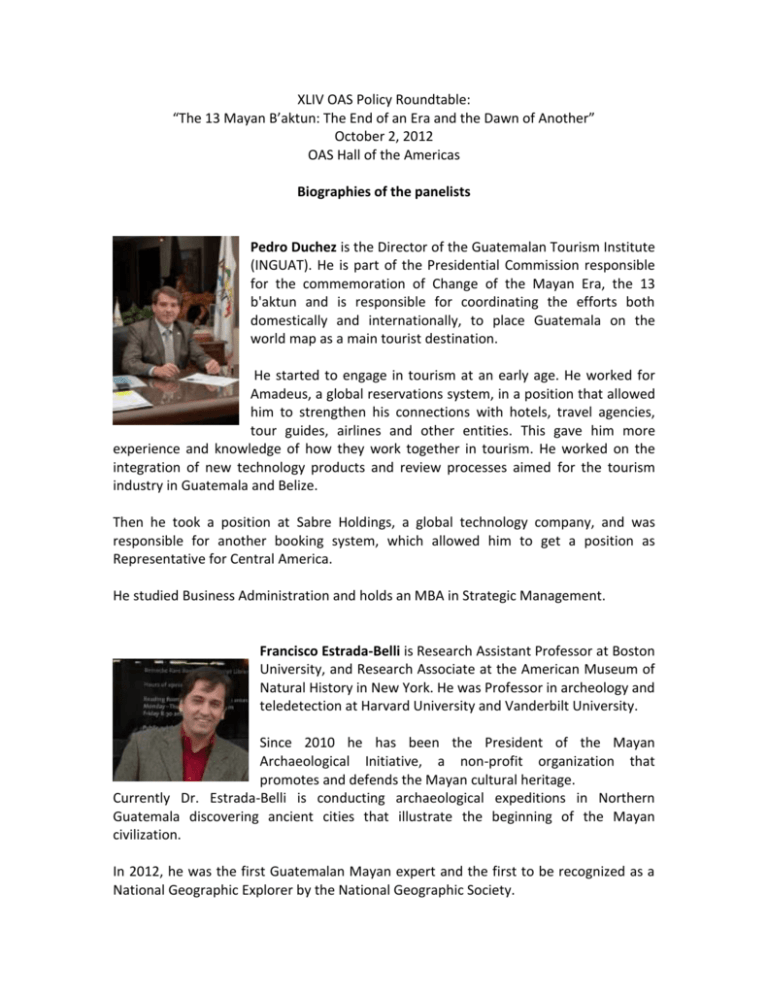
XLIV OAS Policy Roundtable: “The 13 Mayan B’aktun: The End of an Era and the Dawn of Another” October 2, 2012 OAS Hall of the Americas Biographies of the panelists Pedro Duchez is the Director of the Guatemalan Tourism Institute (INGUAT). He is part of the Presidential Commission responsible for the commemoration of Change of the Mayan Era, the 13 b'aktun and is responsible for coordinating the efforts both domestically and internationally, to place Guatemala on the world map as a main tourist destination. He started to engage in tourism at an early age. He worked for Amadeus, a global reservations system, in a position that allowed him to strengthen his connections with hotels, travel agencies, tour guides, airlines and other entities. This gave him more experience and knowledge of how they work together in tourism. He worked on the integration of new technology products and review processes aimed for the tourism industry in Guatemala and Belize. Then he took a position at Sabre Holdings, a global technology company, and was responsible for another booking system, which allowed him to get a position as Representative for Central America. He studied Business Administration and holds an MBA in Strategic Management. Francisco Estrada-Belli is Research Assistant Professor at Boston University, and Research Associate at the American Museum of Natural History in New York. He was Professor in archeology and teledetection at Harvard University and Vanderbilt University. Since 2010 he has been the President of the Mayan Archaeological Initiative, a non-profit organization that promotes and defends the Mayan cultural heritage. Currently Dr. Estrada-Belli is conducting archaeological expeditions in Northern Guatemala discovering ancient cities that illustrate the beginning of the Mayan civilization. In 2012, he was the first Guatemalan Mayan expert and the first to be recognized as a National Geographic Explorer by the National Geographic Society. He has authored more than 30 journal articles and chapters from books on topics such as the origin of the Mayan civilization, the interaction between the Mayan and Teotihuacan culture, the study of the environment of ancient Mayan lands and the use of satellite systems and computers in archeology. His doctoral thesis represents the first use of satellite technology to locate and study archaeological sites in Mayan sites. His major publication: "The First Mayan Civilization. Ritual and Power before the Classic Period "shows a new approach to the beginning of the Mayan culture as a result of recent his own findings in Cival and Holmul, Peten, Guatemala. His research on Northern Guatemala led to several important discoveries such as the Cival City, one of the oldest cities in the Mayan lands. He holds a Bachelors degree in anthropology and archeology at the University of Rome, La Sapienza and a Ph.D. in archeology at Boston University, USA in 1998. Tomas Barrientos is the Director of the Department of Archaeology and of the Center for Archaeological and Anthropological Research at the Universidad del Valle, Guatemala. He is co-Director of La Corona Archaeological Project. His academic interest has focused on topics such as Mayan archeology and anthropology, cultural sustainable tourism and educational programs on the Mayan culture. He was co-Director and Advisor of Cancun Archaeological and Development Project at Vanderbilt University. He was a consultant and instructor for Archaeological Tourism Guides at the Technical Institute for Training and Productivity of Guatemala (INTECAP). He served as Professor of Archaeology, Anthropology and Ecotourism at the Universidad del Valle, Guatemala. He lectured in 75 conferences in Guatemala, United States, Spain, France, Mexico, Italy, Colombia and El Salvador. He is the author of 55 scientific articles. He has done archaeological work and worked as a consultant in the Tzutujil Museum in Guatemala and in the Mankatitlán Project. Barrientos has a degree in archeology from the Universidad del Valle, Guatemala. He was pursuing his doctorate in anthropology at Vanderbilt University, Nashville, USA from 1997 to 2008.

